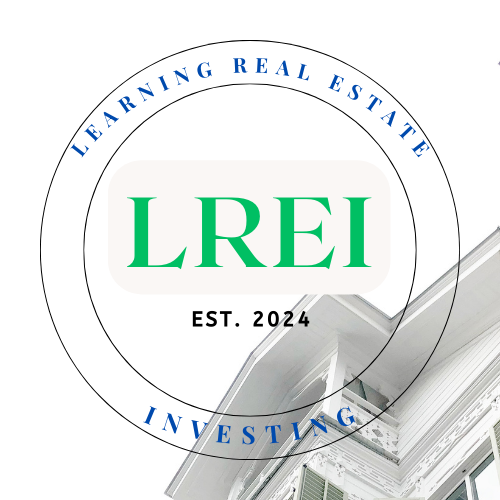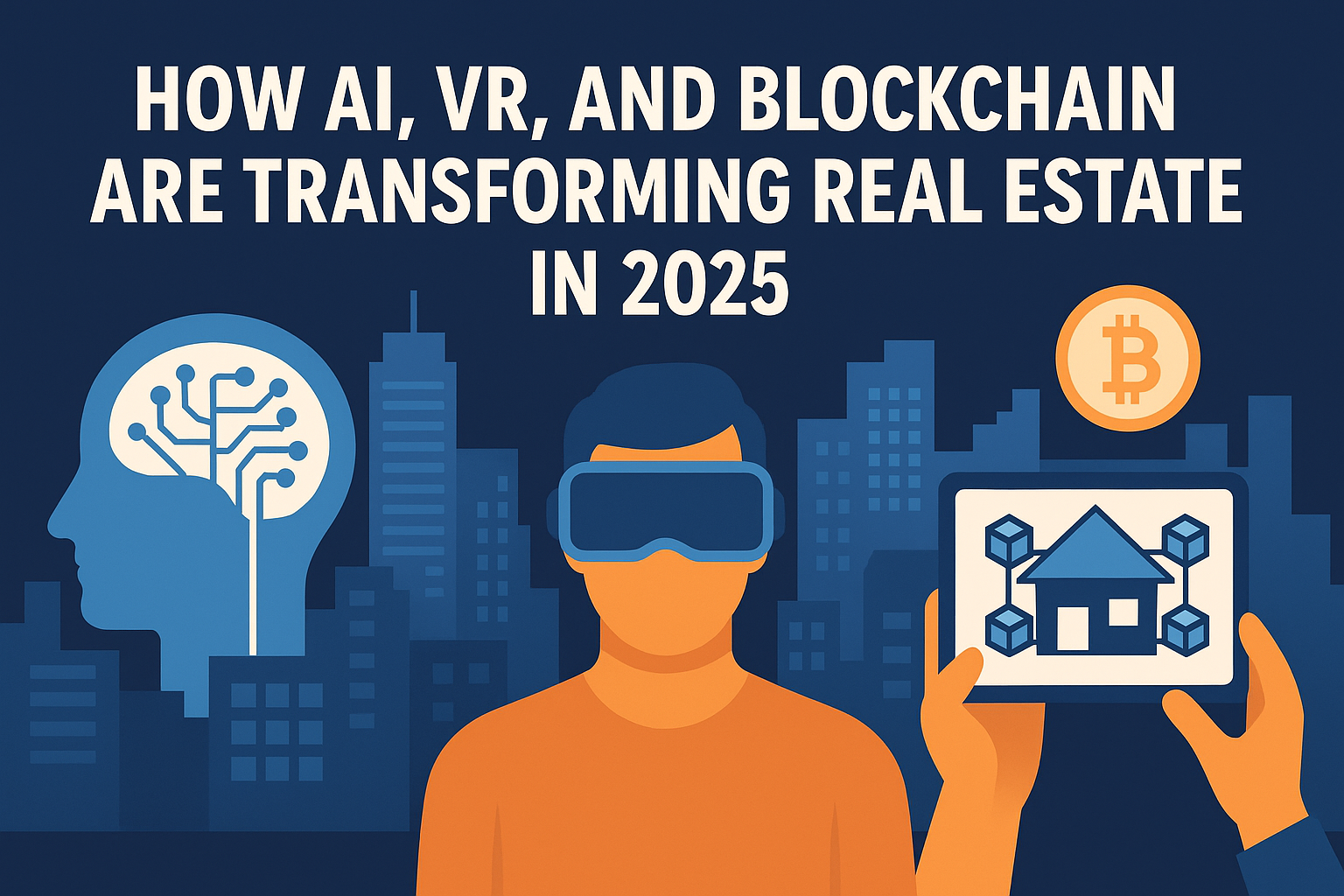How AI, VR, and Blockchain Are Transforming Real Estate in 2025
Technology has always shaped real estate—from the invention of the elevator to online listing platforms. But in 2025, we’re witnessing one of the most disruptive waves yet: Artificial Intelligence (AI), Virtual Reality (VR), and Blockchain are no longer experimental. They’re becoming mainstream tools that investors, property managers, and homebuyers are using daily.
For investors, ignoring these technologies isn’t an option. They’re rewriting the rules of property analysis, management, and transactions. Let’s dive into each one, explore real-world examples, and see how smart investors can leverage them to stay ahead.
AI: Smarter Property Management and Deal Analysis
Artificial Intelligence is now at the heart of modern real estate. The days of relying solely on spreadsheets and gut instincts are fading. AI allows investors to analyze deals faster, more accurately, and at a scale humans alone can’t manage.
Key AI Applications in 2025
- Property Valuation Models: AI algorithms crunch millions of data points to predict property appreciation and rental income.
- Tenant Screening: AI platforms analyze income stability, payment history, and other factors to reduce landlord risk.
- Predictive Maintenance: Smart sensors combined with AI alert managers to potential issues before costly repairs occur.
- AI-Powered Lead Generation: Investors use AI-driven marketing to find motivated sellers and identify off-market properties.
👉 Want to learn how to integrate AI into your investing strategy? Download my free ebook at LearningRealEstateInvesting.com.
VR: Virtual Tours and Digital Staging
Virtual Reality has moved far beyond novelty. In 2025, VR tours are expected by buyers and renters, especially in competitive markets. If you’re not offering immersive experiences, you’re at a disadvantage.
How VR Is Changing the Game
- 24/7 Property Tours: Buyers can walk through homes any time of day, from anywhere in the world.
- Digital Staging: Replace costly staging with virtual furniture and decor options tailored to different tastes.
- Pre-Construction Sales: Developers sell properties using VR models long before completion.
- Reduced Vacancy Time: Landlords using VR tours lease units faster and attract more qualified tenants.
Case Example: An investor in Dallas used VR staging for a $400,000 flip. The property sold 15% faster than comparable listings, proving VR directly boosts ROI.
Blockchain: Smart Contracts, Security, and Fractional Ownership
Blockchain is the least understood of the big three, but its impact may be the most revolutionary. By decentralizing data and removing middlemen, blockchain makes transactions faster, cheaper, and more secure.
Blockchain in Action
- Smart Contracts: Automatically execute transactions when conditions are met, eliminating delays and escrow fees.
- Fractional Ownership: Tokenization allows investors to buy shares of properties, democratizing access to real estate.
- Transparency: Blockchain records are tamper-proof, ensuring clarity in ownership and title histories.
- International Deals: Simplifies cross-border investments by bypassing currency conversion and banking hurdles.
👉 To see how blockchain can streamline your deals, grab my free guide at LearningRealEstateInvesting.com.
Risks and Adoption Barriers
No technology is perfect. Each carries its own risks:
- AI Risks: Flawed data can produce misleading predictions.
- VR Risks: Access to devices is still uneven among buyers.
- Blockchain Risks: Regulations remain unclear, creating legal uncertainty in some regions.
These barriers don’t mean you should avoid tech—they mean you should adopt carefully and keep learning.
Emerging PropTech Trends Beyond AI, VR, and Blockchain
- IoT (Internet of Things): Smart locks, water sensors, and energy monitors improve property management.
- Digital Twins: Virtual replicas of properties allow predictive maintenance and planning.
- Augmented Reality: AR apps help buyers visualize furniture in a space before purchase.
- Blockchain Crowdfunding: Tokenized crowdfunding platforms make investing more accessible.
Action Steps for Investors
How can you leverage these tools in 2025?
- Start Small: Use AI deal calculators to analyze properties.
- Adopt VR Tours: Add 3D walkthroughs to all property listings.
- Experiment with Blockchain: Try fractional ownership platforms.
- Stay Educated: Dedicate time monthly to learning new PropTech tools.
- Partner Smart: Work with teams already using AI, VR, and blockchain.
👉 For a step-by-step guide to using these technologies, download my free ebook at LearningRealEstateInvesting.com.
Conclusion
AI, VR, and blockchain aren’t just buzzwords—they’re reshaping the very foundation of real estate investing. From smarter property analysis to faster transactions and immersive buyer experiences, these tools are creating efficiency and profitability like never before.
Investors who embrace these innovations now will gain a serious edge in 2025 and beyond. Those who hesitate may find themselves left behind in a marketplace that rewards speed, transparency, and tech adoption.
Free Resource: If you’re ready to embrace AI, VR, and blockchain in your investing journey, download my free guide at LearningRealEstateInvesting.com. Inside, you’ll find actionable checklists and tools to start using today.


Leave a Reply